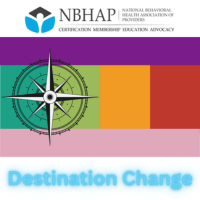Advocacy Alert: Expand Access to Mental Health and Addiction Care
April 25, 2024
via Partnership to End Addiction
Patients and families in need of mental health and addiction treatment have an incredibly hard time accessing affordable care. In-network providers are often extremely limited and may be far away or have long wait lists. Many health plans have "ghost networks," in which in-network providers are listed in the plan directory, even though the providers are not accepting new patients or are no longer participating in the plan’s network. These inaccurate listings are misleading and create logistical and financial barriers to accessing mental health and substance use disorder care. When networks are limited or directories are inaccurate, patients are often forced to wait or travel long distances for care, pay higher costs for treatment from out-of-network providers, or forgo care altogether. Cost is a top reason people with addiction report not receiving care.
Patients go out of network for behavioral health care at significantly higher rates than for physical health care. Such disparities have persisted even though the Parity Act prohibits discriminatory coverage practices that may contribute to high utilization of out-of-network mental health and addiction care. Recent research demonstrates limited participation of behavioral health providers in plan networks and a high degree of inaccuracy in plan directories.
The Behavioral Health Network and Directory Improvement Act would address these issues by:
- Strengthening network adequacy standards for mental health and addiction provider networks;
- Requiring health plans and the federal government to review the accuracy of plans’ provider networks and make the reviews publicly available;
- Authorizing the government to issue civil monetary penalties for non-compliance with network adequacy and directory accuracy requirements;
- Ensuring providers submit timely information to health plans, including on whether they can accept new patients;
- Establishing ombudsman programs to educate and assist consumers; and
- Requiring federal agencies to establish standards for parity in reimbursement for mental and physical health services to reduce barriers to in-network participation by mental health providers.
Read the full article and send a letter here.
Questions? Concerns?
As always, we want your input. What topics would you like to see us cover in future Advocacy Alerts? If you are a representative of a state association and have something for us to consider for an Advocacy Alert, let us know!
Did you know NBHAP members get regular access to our advocate in Washington, DC? If you have any questions about NBHAP's advocacy efforts, please contact us.

A national membership association that provides education and advocacy for those in the behavioral health and addiction treatment industries.
We are the leading and unifying voice of addiction-focused treatment programs.



